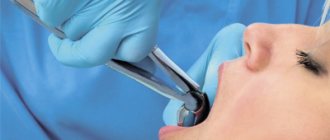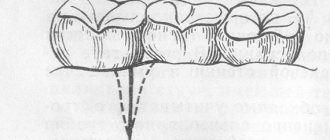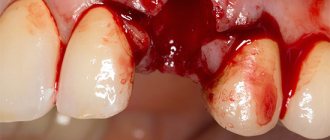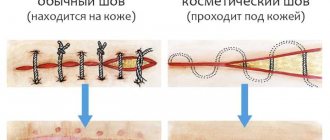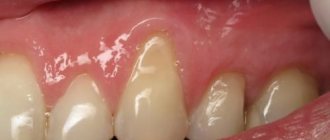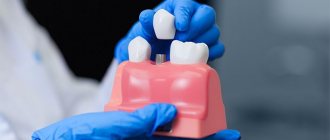Why is special care and treatment required after dental implantation?
In the case of implantation, postoperative therapy is divided into two stages. The first begins immediately after the operation and lasts approximately two to three weeks: this is how long it takes for wounds to heal and stitches to be removed (if any were applied). The second stage is longer and takes on average up to six months. During this time, the implant engrafts into the bone tissue, after which the prosthesis is installed (if we are talking about a two-stage technique). Each stage has its own risks. Despite the fact that implantation today is a reliable and predictable technique, inflammatory processes and even minor mechanical damage to the titanium root can cause rejection. In addition, good condition after dental implantation can be deceptive: patients return to normal life almost immediately, but ignoring the doctor’s instructions and refusing postoperative therapy can lead to complications.
Rehabilitation after dental implantation partly depends on the surgical technique. Implantation can be one-stage or two-stage. The first protocol involves installing a titanium root and a temporary prosthesis in one stage. Classic two-stage implantation (used in the vast majority of cases) follows a different scenario. After implantation into the bone, the implant is sutured into soft tissues or a gum former is placed, and the crown is fixed after the healing process is completed. With a one-stage protocol, the consequences of the surgical stage are usually less pronounced. The implant is installed without making a large incision in the gum or removing the flap. Therefore, severe facial edema or swelling is less common. However, therapy and oral care are necessary with any technique. Next, Startsmile will tell you what you can and cannot do after installing an implant, as well as the specifics of therapy during the recovery period.
Importance of Vitamins
In order for the intraosseous structure to fuse with hard tissues faster, and for the wound area to heal without complications, it is important not only to be scrupulous in choosing food products, but also to try to consume more vitamins.
The most significant substances necessary to maintain the body in the postoperative period are:
- Vitamin C .
The substance promotes intensive production of collagen, which maintains the health of bones, muscles, blood vessels and soft tissues within normal limits. In addition, it has an antioxidant and anti-inflammatory effect, which means it promotes rapid recovery after a traumatic procedure. - B vitamins . In combination they work to accelerate regeneration processes in gum tissue and bone structures.
- Vitamin D. _ Without this substance, calcium in the body will not be fully absorbed.
- Vitamin E. _ One of the most powerful antioxidants. Prevents the development of pathological processes that occur in response to damage.
What to do after implantation?
First of all, it should be said about the sensations after the operation. On average, the procedure for installing one implant takes about 20 minutes, after which the patient goes home. Next comes the rehabilitation period, during which tissue healing occurs. Recommendations after implant installation are a whole set of measures that make the recovery process as fast and successful as possible, as well as eliminate some negative manifestations and complications (swelling, pain, etc.).
- Pain
After the anesthesia wears off, moderate pain usually occurs in the surgical area, which usually disappears within a few days. Your doctor may prescribe painkillers after dental implantation. If the pain is very severe and does not go away for a long time, it may be due to inflammation or nerve damage. If such complications occur, you should immediately seek help from a specialist. - Swelling
Most often occurs during classical two-stage implantation and when a large number of implants are installed. The gums begin to swell a few hours after the end of the operation. On the second or third day, the swelling is most pronounced, hematomas and bruises may appear. With proper care, soft tissue swelling disappears within a week. If your face is swollen, then it makes sense to take anti-inflammatory drugs that reduce swelling. Ice compresses, which can be applied in the first few days after surgery, help relieve swelling after dental implantation. If the swelling does not go away for a long time, then we can talk about complications after implantation. - Sutures
Sutures are required when suturing the implant into soft tissues during healing, as well as in some cases of bone grafting. Sutures are removed within 12-20 days after surgery. In the first 14 days, until the tissue heals and the sutures are removed, the use of antiseptic drugs is strongly recommended. The surgical area should be treated with ointments and gels to accelerate regeneration, as well as treated with antibacterial agents. - Antibiotics
Medicines are prescribed for extensive surgery. In other cases, you can limit yourself to taking antihistamines, which will reduce the risk of inflammatory processes. - Nutrition
In the first days there are serious dietary restrictions. Eating can be resumed several hours after surgery. The diet after dental implantation excludes hard, spicy, too hot or cold foods. During the entire healing period, it is not recommended to chew on the side where the implantation was performed. During immediate implantation with immediate loading, the intake and chewing of solid food should be limited. - Hygiene
After implantation, it is necessary to place special emphasis on hygiene, since the success of implantation depends on the quality of oral care. With classic implantation with sutures, hygiene is carried out using a soft toothbrush and antibacterial paste. In the one-step method, special brushes and antibacterial solutions are used to clean the implant and prosthesis. White plaque after tooth implantation can be removed using cotton swabs treated with gel or solution.
Dependence on technique
If the patient has replaced only one tooth with a titanium analogue, then medical advice regarding the composition of the products and their temperature is retained. It is recommended to take solid food earlier. Chewing should be done with special care on the opposite side, and the mechanical crushing of food should be slow and thorough.
If a temporary crown was installed immediately after implantation of the root structure, it is prohibited to load it . This microprosthesis, covering the crown part of an artificial tooth, is used exclusively for aesthetic purposes.
If the chewing pressure increases, the installed titanium rod changes its position slightly - the danger of its non-acceptance by the tissues increases.
One-stage techniques, including the “All on 4” or “All on 6” protocols, require immediate loading, i.e. chewing here is not only possible, but also necessary, and immediately after installation of the prosthetic structure.
Implantologists recommend starting with foods of a soft consistency, gradually introducing tougher foods into the diet, such as chunky meat, cookies, etc.
As you increase the load, you need to monitor your sensations. If discomfort occurs, you can reduce the intensity of the exercise and take a break for several days. However, as statistics show, patients manage to return their diet to their usual course in an average of 3 weeks.
These techniques, used to restore the entire dentition, require stress for medical reasons. Pressure on implanted titanium products activates metabolic processes in the bone at the cellular level, which promotes intensive growth of bone masses. Thus, the rod receives reliable fixation, so immediate loading is simply necessary.
What should you not do after implantation?
Even before implantation, the patient must understand that in the first time after the operation he may have to change his usual lifestyle and give up some things.
After dental implantation, the following are prohibited:
- physical activity and sports – limit for a month;
- airplane flights (at least in the first 7 days);
- hypothermia, going to the sauna (during the healing period) and swimming pool;
- You can smoke in moderation, or it is better to abstain completely;
- It is not recommended to drink alcohol for a month after dental implantation;
- If a sinus lift has been performed, you should cough and sneeze very carefully in the first days.
RESTRICTIONS
During the postoperative recovery period, the following should be excluded from the food supply:
- I eat food with a rigid structure. Beef and pork in pieces, nuts, hard baked goods and other hard foods during chewing can catch the suture material, which will lead to its rupture or severely injure the inner lining of the mouth near the wound area.
- Salty, spicy, sour foods, which are also included in the list of postoperative restrictions, due to their ability to irritate injured tissues. Also, such products increase blood circulation in the oral cavity, which results in the appearance of bruises and swelling.
- Confectionery and sweet dishes. They create an ideal environment for the development of pathogenic microorganisms and have a detrimental effect on overall health.
- Caffeinated drinks. As mentioned above, coffee increases blood pressure, and this condition, in turn, causes sudden bleeding of the wound.
- Alcohol. The intoxicating element is an absolute taboo for the first 14 days after surgery. After drinking a drink, even with a low alcohol content, the process of intense blood flow to the vessels of soft structures begins. The regeneration of damaged tissues slows down, and the risk of bleeding develops - non-acceptance of the titanium rod by the body can occur at any time.
On a note! Doctors do not prohibit patients from completely abstaining from fatty foods, but they recommend limiting their quantity as much as possible.
The most complex complex of organic substances found in such products is poorly absorbed by the body, which is already under stress after surgery.
Further care
Despite the fact that tissue healing and recovery after dental implantation takes two to three weeks, throughout the entire period of implantation the risk of developing inflammation and complications is very high. After several months after the operation, the restrictions become less strict, but some important points must be observed.
✔ Food
throughout the entire engraftment stage it should be useful and correct. Give preference to foods containing vitamins (vegetables, fruits), but not too harsh. Before installing a permanent prosthesis, chewing on the side where the implant is located is not recommended.
✔ Regular cleaning of the implant and orthopedic structure.
It is recommended to use an irrigator or special toothbrushes.
✔ Preventive visits to the dentist.
After successful engraftment and installation of a permanent prosthesis, preventive visits to the doctor should be made at least once every six months.
Regardless of how much time has passed since the start of treatment (several days or several months), it is necessary to consult a doctor if complications are suspected: inflammation and severe pain that does not go away for a long time, noticeable disproportion of the face, discomfort from the prosthesis.
How to care for implants and your mouth after installation
After implantation, you need to follow a number of rules that will speed up the engraftment of the artificial root. The implantation site should be subject to as little trauma as possible. To do this you need to adhere to the following rules:
- Brush your teeth regularly with a soft toothbrush;
- Intensive mouth rinsing is prohibited before removing sutures;
- oral baths with antiseptic solutions or herbal decoctions are allowed;
- you can use dental floss;
- You should visit the doctor at least 2 times a week before the stitches are removed.
Does it hurt to get dental implants?
Contrary to popular belief, dental implants do not hurt. The fact is that this procedure is carried out using modern local anesthetics, and for the most sensitive patients the use of sedatives and even general anesthesia is provided:
- Local anesthesia
. The easiest way to eliminate painful sensations. During the implantation process, the drugs ultracaine, articaine or melavacaine are used - they perfectly block nerve endings, and the analgesic effect can last for 2 hours after the procedure. Anesthetic injections are made directly into the operated area (infiltration and conduction anesthesia) or into the base of the skull to block the trigeminal nerve (trunk anesthesia). If the drug is selected correctly and the required dose, the patient does not experience pain, but feels all the manipulations performed by the doctor. It is for this reason that local anesthesia when installing implants is supplemented by the use of sedatives for patients who are particularly sensitive and fearful of dental intervention. - Minimal (superficial) sedation (anxiolysis)
. It is used in patients who experience anxiety during complex dental procedures - as a result, anxiety and fear go away, the patient is conscious (a feeling of slight drowsiness is possible), and follows all the doctor’s commands. - Moderate sedation
. If the patient is afraid of any medical intervention, it is possible to use moderate sedation - in this case, a little more sedative is used, as a result of which the patient remains conscious, can respond to the doctor’s commands, but is half asleep. - Oversedation
. It is also called deep sedation - increasing the dose of sedative puts the patient to sleep, while there is a reaction (sometimes with a slight delay) to a loud call or other external stimuli. In this state, the patient does not feel anything (provided that a local anesthetic is used), and he has virtually no memories of the installation of dental implants. Awakening occurs within 15 minutes after stopping the supply of the sedative drug (can be performed either intravenously or inhalation, using a mask). - General anesthesia
. This anesthesia technique is used in patients with allergies to any types of local anesthetics, with an increased gag reflex, in people who experience panic fear of dental treatment (dental phobia), in children. In addition, the dentist will recommend general anesthesia if during the operation it is planned to install more than 6-10 dental implants in combination with bone grafting. Consciousness is completely switched off, there is no reaction to any external stimuli, pain is not felt, any muscle activity is excluded, respiratory function is maintained using a ventilator. The use of general anesthesia requires the presence of an experienced anesthesiologist during dental implantation. Awakening occurs 20 minutes after the administration of the anesthetic, but it is advisable to remain under medical supervision for at least 40 minutes.
Sedative effect - reduction of irritability, relief from feelings of excitement or fear due to the use of special drugs - psycholeptics. Sedatives are not anesthetics, so during the installation of dental implants they are used exclusively in combination with local anesthetics.
The patient's condition under deep sedation and general anesthesia is similar. The only difference is that oversedation does not imply an anesthetic effect - pain sensations persist, and the patient remembers them, which can cause panic fear of dental treatment in the future.
In the process of choosing a specific type of anesthesia, the doctor is guided by the following factors:
- Patient's pain threshold (people with a low pain threshold most often require deep sedation or general anesthesia).
- Experienced fear or anxiety during dental operations.
- The presence of allergic reactions to certain types of anesthetics and sedatives.
- Vomiting reflex. In many patients, it manifests itself while dental instruments are in the oral cavity. A strong gag reflex can become a serious obstacle to the quality work of a doctor.
- The complexity of the upcoming operation.
The answer to the question of whether it is painful to place a dental implant directly depends on the correctly selected type of anesthesia - if suitable drugs were used during the operation, the patient will not experience any discomfort.
Before the procedure, the doctor conducts a thorough examination of the oral cavity, studies the patient’s medical history and X-rays, based on which he draws up a preliminary operation plan (single-stage, one-stage, two-stage) and selects the appropriate method of pain relief.
Reviews about dental implantation
Innocent
“At the beginning, I doubted for a long time whether I should undergo implantation. But still, one fine day I went and did it. You know, I didn't regret it. Yes, it was unpleasant in places and there were these restrictions, but the result outweighs all the disadvantages.”
Lena
“A couple of days ago my teeth were restored and 2 implants were inserted. I couldn't be happier with them! I finally have a full smile! One thing that was upsetting at first was the pain during and after the operation, and also the fact that I had a swollen cheek for two days.”
Svetlana
“I’ll tell you straight, it was scary. Before the operation itself, I was tormented by questions: will it hurt me, how much will it hurt, will there be any problems when they install new teeth for me, is this dental implant reliable, will it not fall out, what if I look worse with it, etc. In the end, I didn’t remember the procedure itself - they gave me an injection, fell asleep, and woke up with new teeth, like in a fairy tale. I was happy. The doctor said something and prescribed it, but I had no time for it. Then I realized that I should have listened, but it worked out too - I got sick for a couple of days and stopped. Yes, and for the sake of such beauty one can endure”
